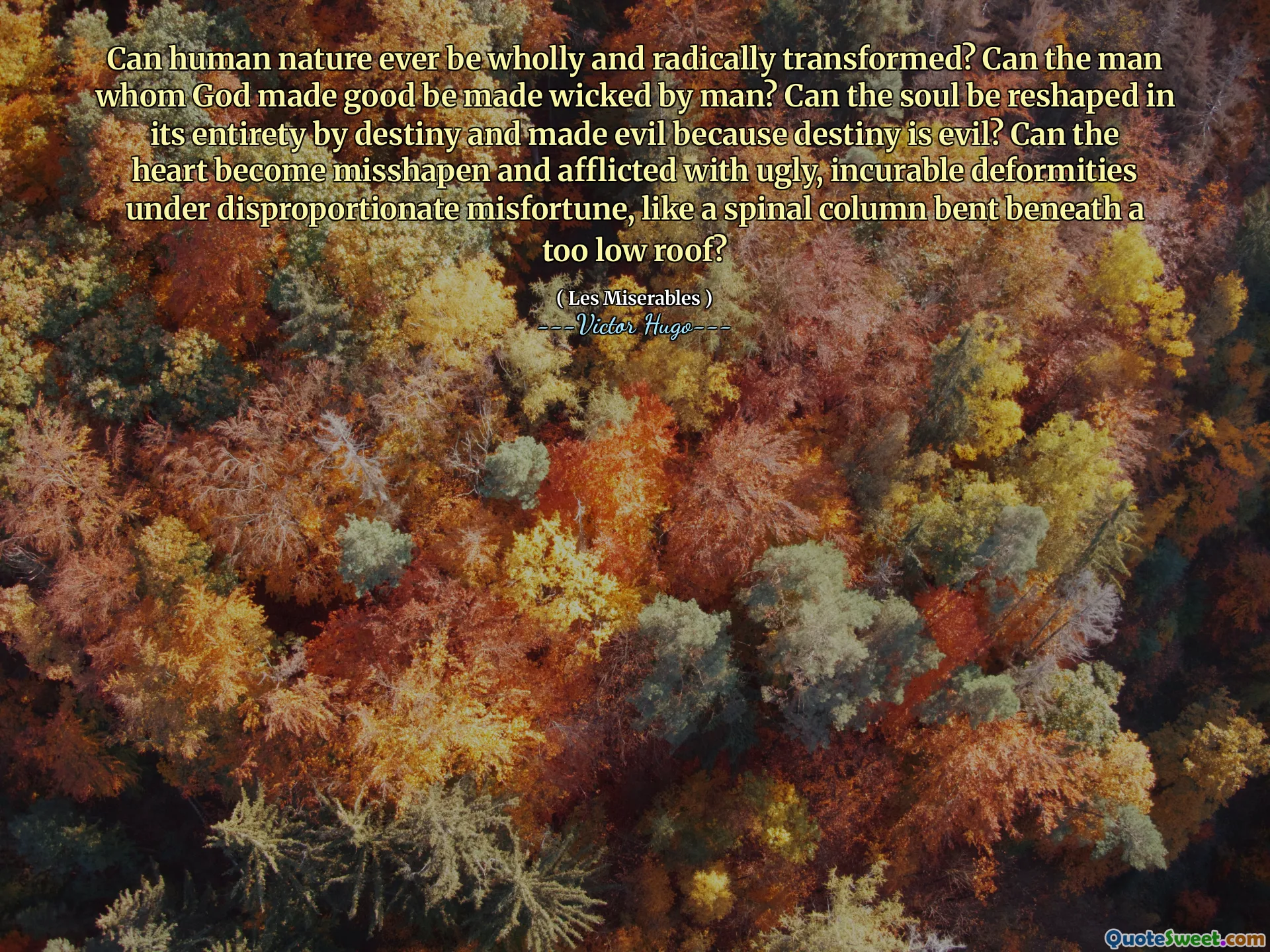
Can human nature ever be wholly and radically transformed? Can the man whom God made good be made wicked by man? Can the soul be reshaped in its entirety by destiny and made evil because destiny is evil? Can the heart become misshapen and afflicted with ugly, incurable deformities under disproportionate misfortune, like a spinal column bent beneath a too low roof?
This profound quote from Victor Hugo's '(Les Miserables)' reflects on the fundamental nature of human morality and the powerful influences of destiny, environment, and misfortune on a person's character. The questions posed challenge us to consider whether the core of human goodness can be entirely changed or corrupted by external forces. Hugo seems to suggest that some aspects of human nature are deeply rooted, possibly in our divine origins, making radical transformation difficult or even impossible. The analogy of a bent spinal column under a low roof vividly illustrates how external forces—be they societal pressures, misfortune, or wrongful influences—can deform and distort our inner selves. This evokes a sense of tragedy and resilience, as it highlights the delicate balance between innate goodness and external evil. The quote also invites reflection on whether evil is entirely a product of external circumstances or if some part of human nature possesses an inherent goodness that remains resilient amidst adversity. It resonates with the idea that while individuals may be shaped or bent by life's hardships, their core essence, akin to the divine in others, might remain unaltered. Hugo's philosophical inquiry underscores the importance of compassion and understanding, acknowledging that external deformities—whether moral or physical—are often the result of environments and circumstances beyond personal control. Ultimately, the quote challenges us to contemplate the limits of transformation and the profound impact of fate and environment on the human soul.






